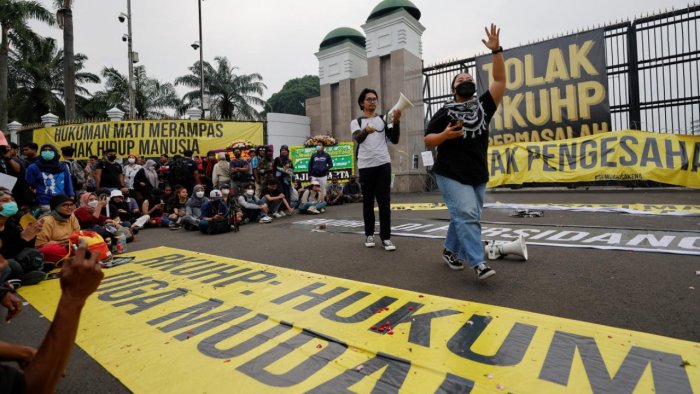
Senior officials have confirmed that Indonesia is set to ratify significant changes to its criminal code on Tuesday. Critics fear that this legal reform could roll back the Southeast Asian country’s hard-won democratic freedoms and police morality.
The most contentious changes to the code include provisions that would make having sex outside of marriage punishable by up to a year in prison, forbid cohabitation between unmarried couples, outlaw insults to the president, and express opinions at odds with the Pancasila, the country’s ideology.
The revised code will be approved by Parliament in a plenary session on Tuesday, according to Sufmi Dasco Ahmad, the deputy speaker of the House of Representatives, and Bambang Wuryanto, the chairman of the parliamentary commission in charge of the revision, who spoke to Reuters on Monday.
The draft code has been approved by both the administration and the House of Representatives, removing a barrier to its passage.
The country’s long-awaited overhaul of its penal code from the colonial era has recently sparked large-scale protests, albeit this year’s reaction has been much more subdued.
In September 2019, Parliament was supposed to ratify a new draft code, but protests around the country over alleged dangers to civil freedoms prevented that from happening.
Since then, lawmakers in the third-largest democracy in the world have softened some of the most divisive provisions.
Revisions to provisions regarding sex outside of marriage and cohabitation, for instance, now say that only close relatives—such as a spouse, parent, or child—may file such complaints, while the president alone may file a complaint for insulting the president.
However, civil society organizations and legal experts argue that the modifications don’t go far enough.
According to Bivitri Susanti, a legal expert from the Indonesia Jentera School of Law, “This criminal code is a huge setback for Indonesia,”
“The state cannot manage morality,” she continued. “The government’s duty is not as an umpire between conservative and liberal Indonesia.”
She added that because they may be broadly interpreted, the articles on customary law, blasphemy, protesting without authorization, and expressing opinions that were contrary to the Pancasila were all legally problematic.
The new law will take into force three years after it is ratified while the government and other institutions write the necessary implementing regulations.



